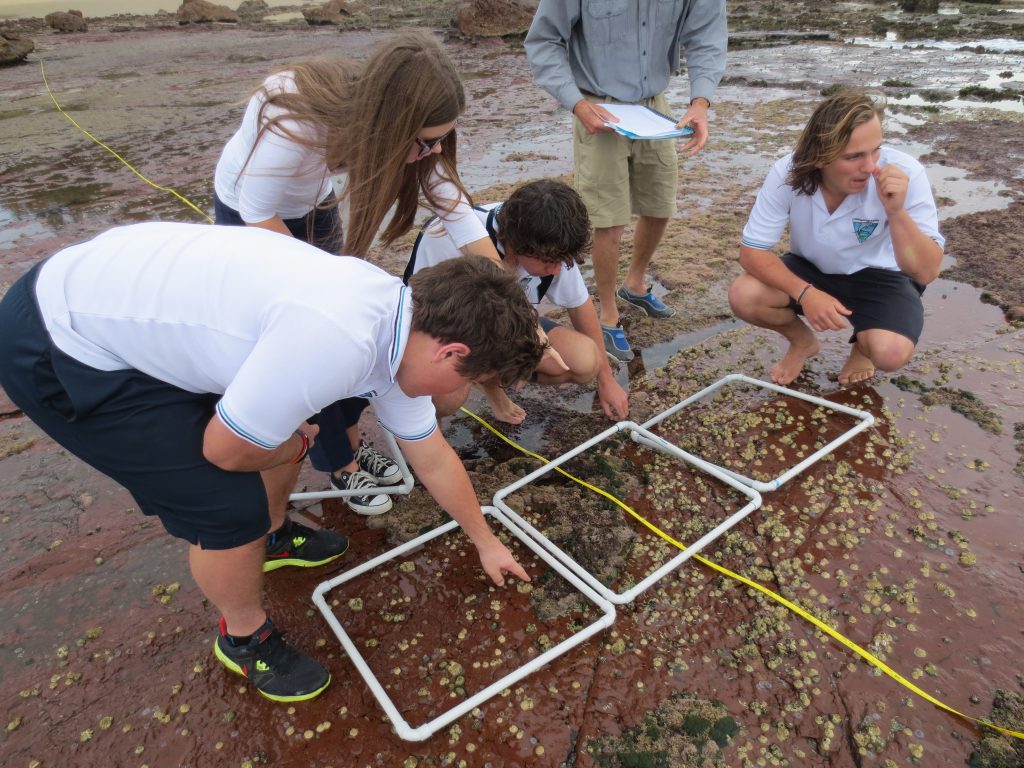Australia’s adult and community education organisations are well-positioned to expand their activities in social entrepreneurship. This will complement their historic community development role and delivering programs to meet local social and economic needs through training for vulnerable and disadvantaged groups.
This is one of the key findings arising from Community Colleges Australia’s (CCA) research into the role that community education providers play in regional economic development, in a report to be released in February.
“A significant opportunity exists for NSW community education providers to become more involved in regional social entrepreneurship as a means of stimulating their local economies and increasing employment opportunities,” said Dr Don Perlgut, CEO of CCA.
CCA has identified four ways for the community education provides to get involved in social entrepreneurial activities:
- becoming more entrepreneurial themselves, by engaging in social enterprises that are consistent with their missions and operations;
- teaching entrepreneurship to individuals and businesses;
- teaching the secondary school teachers of entrepreneurship the core principles, so that they in turn can incorporate the knowledge in their classroom teaching - effectively “train the trainers”; and
- assisting social enterprises – both not-for-profit and for-profit – in developing their business practices.
“CCA endorses the recent National Centre for Vocational Education Research recommendation to develop a national entrepreneurship strategy that supports bottom-up initiatives, so that the VET sector can participate more,” said Dr Perlgut.
The 2017 NCVER report VET and Entrepreneurship also recommends that:
- enterprise skills should be a key component of most VET courses;
- entrepreneurship skills and knowledge should be included in at least some courses, the obvious example being IT-related qualifications; and
- the entrepreneurial knowledge and skill of VET educators and trainers needs to be nurtured.
Building on the findings from its October 2017 Mullumbimby regional economic development forum, CCA is planning to run a symposium on embedding social entrepreneurship in the community education sector. “CCA encourages anyone with an interest in community social enterprise to contact us,” said Dr Perlgut.
About Social Enterprises
“Social enterprises” are defined as:
Businesses that trade to intentionally tackle social problems, improve communities, provide access to employment and training, or help the environment… fulfil[lig] a diversity of missions and serv[ing] a wide variety of beneficiaries…. [They] are led by an economic, social, cultural or environmental mission consistent with a public or community benefit, trade to fulfil their mission, derive a substantial portion of their income from trade, and reinvest the majority of their profit/surplus in the fulfilment of their mission.
On this definition, all community education organisations are social enterprises, the CCA report notes. Community education providers have a community development focus – tackling social problems such as unemployment, social isolation and other needs, and derive a large part of their income from trading and reinvest any surpluses.
While the majority of Australian social enterprises operating in Australia are not-for-profit organisations, not every not-for-profit is necessarily a social enterprise.
Community Education Sector Activities
Many NSW community education providers run small businesses: classic social enterprises include Camden Haven Community College’s Pilot Station, located at Dunbogan, near Laurieton NSW (pictured below). The historic Pilot Station, originally built in 1890, runs community, social, cultural, environment, educational events and workshops with local schools, the historical society, chamber of commerce and National Parks. See images from the Pilot Station below:
The CCA research has also identified different models how community providers support social entrepreneurs:
Byron Community College is a partner in Sourdough Business Pathways (see image above), a not-for-profit initiative that provides a strong future for the next generation in the Northern Rivers region by building strong businesses that generate prosperity and jobs. Successful new businesses include Byron Film Studios, Northern Rivers Screenworks and Enova Energy. The college also runs a business incubator located at its Mullumbimby campus.
Coffs Coast Community College joined with Coffs Harbour Council in establishing “6 degrees”, a space where people can come to work, share, collaborate and receive inspiration from other like-minded people. This has resulted in a community of local entrepreneurs, freelancers and collaborators, and digital spaces for established businesses in the Coffs Harbour CBD and the Coffs Harbour Technology Park.
Business Growth Centre in NSW Lake Macquarie area runs a business incubator, with 22 offices and light industrial units for start-up and growth phase businesses. More than 140 businesses have been in the Centre in the past 17 years, and an estimated 340 jobs have been created. The Centre also runs a business advisory service and network for business intenders, start-ups and established businesses. In early February, Business Growth Centre is running a Digital Boot Camp, aimed at helping businesses understand what it takes to build a strong digital presence. 
Entrepreneurship in Australia
The research on social enterprises shows that the external constraints the prevent social enterprises from growing their businesses and their impacts all apply to community education providers, including the lack of external finance and the role of proper organisational governance.
“Developing and operating social enterprises successfully must be underpinned by organisational capacity,” Dr Perlgut said. “To work effectively in promoting social entrepreneurship, it is essential that the community education sector obtain the resources to do so.”
The “21st century” or enterprise skills include the ability to convert knowledge to action, resilience in face of setbacks and adversity, problem solving, thinking creatively and critically, communication skills and self-reflection abilities. These are the transferable enterprise skills identified by the Foundation for Young Australians, which will be required in a majority of future jobs.
Examples of some Australian organisations that assist the development of entrepreneurial skills:
- Sydney School of Entrepreneurship (SSE), an independent not-for-profit organisation established by the NSW Government in 2016 which brings together 11 NSW universities (including the regional universities) and TAFE NSW, and runs programs which could be extended to the community education sector. SSE is offering a free core unit of study to all enrolled students of the universities and TAFE. This would be an ideal offering to extend to NSW community education students.
- The Australian Centre for Rural Entrepreneurship (ACRE) – operating primarily in Victoria – is a for-purpose organisation that exists to build thriving rural communities through igniting entrepreneurship in young people to realise new opportunities for community rejuvenation.
- The Origin Foundation has partnered with the Mitchell Institute, the Victorian Association of State Secondary Principals, the New South Wales Secondary Principals’ Council, and 21 government secondary schools in New South Wales and Victoria to study how entrepreneurial learning can respond to the growing need to enhance student capabilities to apply knowledge in sophisticated ways.
- The Queensland Government has developed a Regional Innovation Hubs Program to support innovation and entrepreneurship in regional Queensland, to encourage innovation and to create jobs.
 Image above: Camden Haven Community College Pilot Station
Image above: Camden Haven Community College Pilot Station
 Image above: Camden Haven Community College Pilot Station environment group
Image above: Camden Haven Community College Pilot Station environment group





